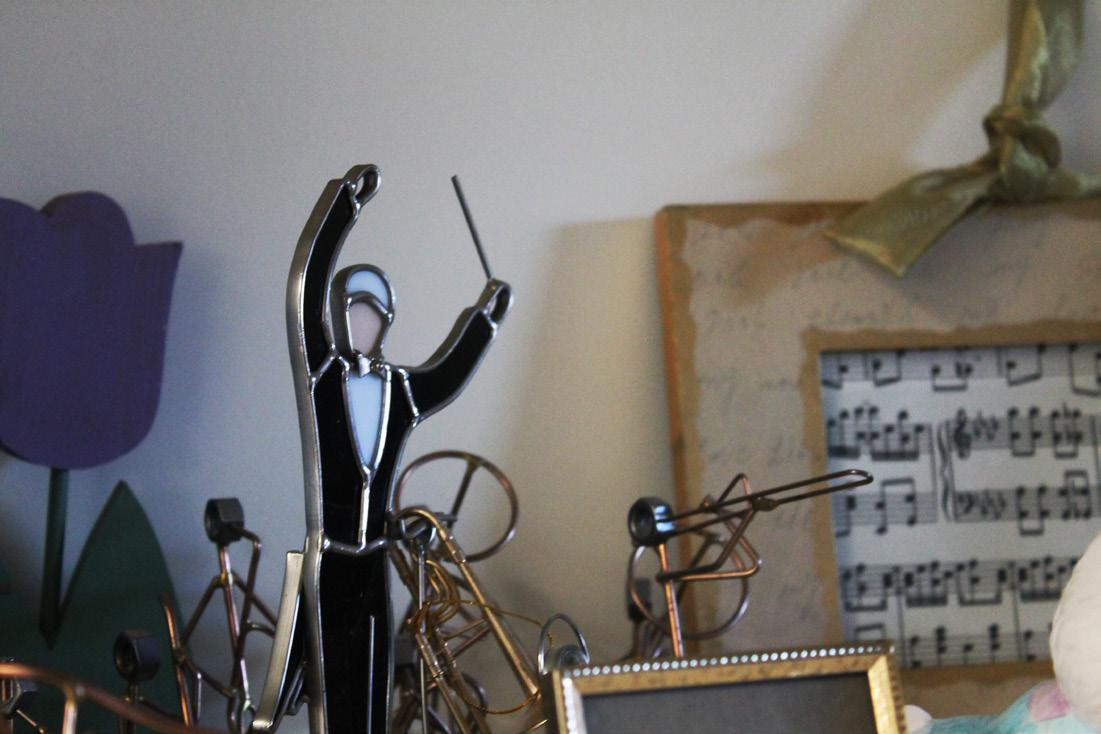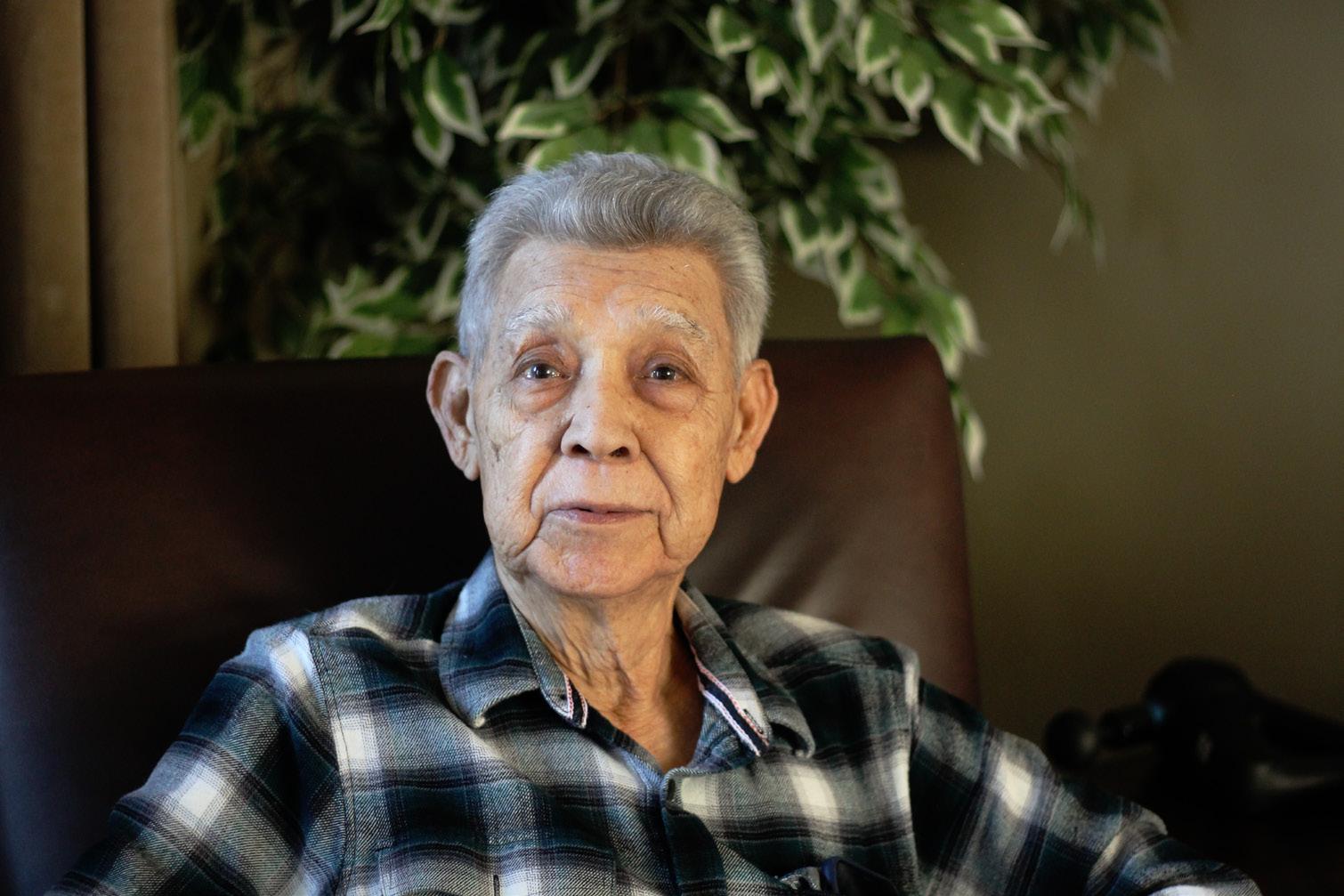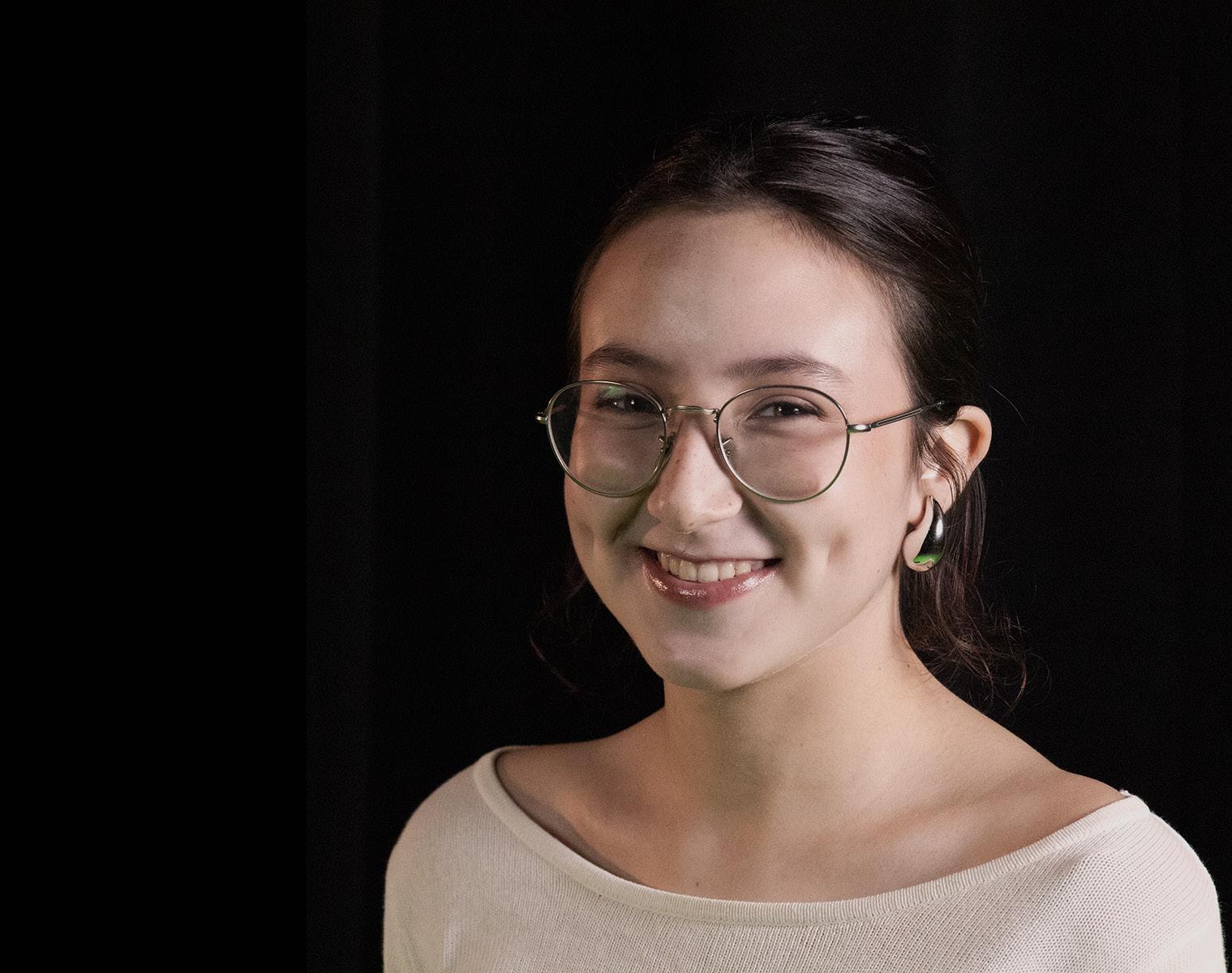Maestro



Graduation caps fy in the air, and students are cheering, laughing, and crying. Emotions run high as this moment marks the end of an arduous four-year journey before they move on to their own passions and dreams. Leonardo Duarte, an average height, dark-haired Hispanic man, walks towards the return line for rented caps and gowns, talking with his friends. Tey talk about his plans to attend college— as most of them would be working as tradespeople straight out of college—and wish him luck.
As Duarte reaches the end of the line to return his cap and gown, he sees Ms. Crawley, his junior year history teacher. She says to him, “What’s this I hear about you going to college?” Duarte says, “Yes I’m already enrolled for summer school at Fullerton’s Junior College”. She responds, “Leonard, you’ll just never make it. Even if by some miracle you were to make it through college, no one wants to hire a Mexican band director.” Duarte knew that Ms. Crawley could see the efect that her statement had on him in
his face, but he wouldn’t give her the satisfaction of letting it change his course. (Duarte) Troughout his life, he would end up using this conversation he had as fuel to keep going when things got tough–because he knew he had to prove her wrong.
Duarte went on to direct band, orchestra, and choir in various schools from 1960 up until 2003. He was honored as “My Favorite Teacher” in American Profle magazine, and the music building at Chico High School, where he taught for a big portion of his career, is named, Duarte Hall, in his honor. Leonardo Pérez Duarte is an example of a resilient, determined person who endured signifcant racism and opposition to his aspirations; yet, he has been able to be successful and fulflled despite it. He proves that it is possible for people who are systematically and socially oppressed to live fulflling lives.
Duarte was raised on a farm in Brawley, California and his parents were Mexican immigrants, much similar to a lot of the other families that lived nearby. Per the time, schooling was segregated up until when he was in the seventh grade. Because of segregation and his location, racism wasn’t as bad as it became later in his life. During this time, his family had to move up to the Bay Area in the summer to pick fruit so they could make money during the hot summer months. Tis migrant journey was challenging for their family; moving to earn money

meant Duarte ofen returned to school weeks afer the year had started. Living on a farm also provided the stress of Duarte having to get up early and stay up late working on the farm, doing chores. Around this time in his life is when he heard the

school band playing, leading him to fall in love with music. Tis inspired him to join the band in 7th grade when a music program was created at his school. Duarte was forced to play the trombone, as that was the last available instrument due to him arriving at school late in the school year. Troughout 7th grade, Duarte kept playing and playing. He had a band teacher who handed him a book which Duarte refers to as the “Bible for trombone playing” (Duarte), and Duarte played through that book day afer day. He would practice in the practice rooms at school for an hour each day until he went from beginning band in his frst semester to advanced in the second.
Throughout high school and college, Duarte went through great amounts of opposition, specifcally racism. He came into high school when schools had just become integrated, so it was really difcult for not only him, but people of color in general. His ideas to simply go to college were shot down by many, Ms. Crawley being one of them–a fgure he should have been able to look up to in his high school years. Duarte also had to endure racist jokes at school. Phyllis Duarte, Leonard Duarte’s wife, recalls how “he had a hard time, because at the time there was so much prejudice against Mexicans and that was the biggest thing” (Phyllis Duarte). Little undermining comments here and there, or “microaggressions”, hold more weight than most people perceive they do. Te Association for Psychological Science, a nonproft organization dedicated to teaching scientifcally oriented psychology, states that “microaggressions reinforce White superiority in the United States by ‘othering’ people of color (e.g., treating people of color as if they are not true citizens) and communicating that they are inferior” (Association for Psychological Science). Microaggressions are ofen played of as jokes, yet their impact on the victim does not in any way mirror that point. Battling social and economic

oppression weighed heavily on Duarte—yet he was able to persevere and used the words he heard from Ms. Crawley as fuel to keep going. Every time he thought of giving up, he would hear her say “no one would ever hire a Mexican band director,” and he would just keep going.
Despite all of the racism Duarte faced throughout his life, he didn’t let it alter his path, dreams, and goals–instead, he used his opposition as a driving force to keep going. And instead of never looking back on these experiences, he used them as lessons to teach to his students, children, and eventually grandchildren. He taught them resilience and determination, and why it is important to not let other people afect your passions in life. Having an older role model is very benefcial to have in one’s life, and Duarte acts as one for his children and grandchildren. Te Oregon Community Foundation did an initiative, in which they studied youth in a local k-12 school, and the efects of them having older rolemodels. Tey concluded that “youth with ‘mentor like’


relationships outside the home are less likely to have externalizing and internalizing problems like bullying and depression.” Tis shows a positive impact that an older role-model can have, and this is how Duarte acted not only towards his children and grandchildren, but the students he taught.
Duarte recalls that the “most important thing when [he] was teaching was to make sure that all of [his] students were progressing, getting better, becoming better musicians” (Duarte). Whereas his high school teacher Ms. Crawley
sought to bring him down and thought the worst of him, Duarte made sure he did everything he could to help his students learn as much as they could. In this way, he acted as an “illuminator”. According to journalist David Brooks, an “illuminator” is a person “seeing each person with reverence and respect.” Whereas a “diminisher”—for example Ms. Crawley— can be defned as someone who, once they “learn a fact about another individual, they create a series of assumptions about that person. Tis ofen does not lead to a positive experience” (“ Tink Better with David Brooks”). Duarte saw what was wrong with the way Ms. Crawley treated certain students based on certain prejudices she held, and he knew he wouldn’t treat his students like that—instead he would treat them with respect and wouldn’t look down upon any one of them.
“I wanted to become a music teacher, so I became one.”
-LeonardoDuarte

Duarte lives the “American Dream”, living peacefully at home, spending his days tending to his garden in his backyard, and composing music. He also spends time with his wife and dog, and is able to live a happy and comfortable life. Tis was all able to happen because of the fact that Duarte never let people’s perceptions of him afect his passions. He wouldn’t be the same today if he took what Ms. Crawley said, and gave up on his dreams of becoming a band director. He also wouldn’t have made the impact he did on the students he taught, or his family whom he taught those same values to. He lives this “American Dream”, with people he loves, by people he loves, and being able to do what he loves every day comfortably and without opposition. He proves that it is possible to be in a difcult situation and prevail, and be able to live your life freely despite people trying to stop you.
“I wanted to be a music teacher, so I became one” (Duarte).

LuluDuarte is a student at Mountain View High School, and a Design student at Freestyle Academy. She enjoys going to the beach, shopping, and sharing time with her family and friends. Her dog and cat take up a big portion of her time. Lulu loves art, specifcally digital art through programs like Procreate and Illustrator, and plans on studying graphic design in college.